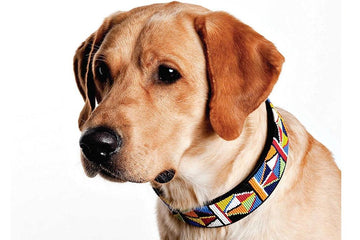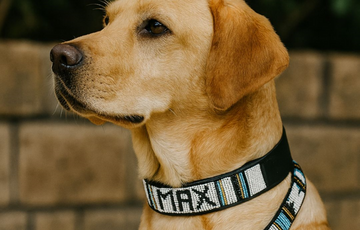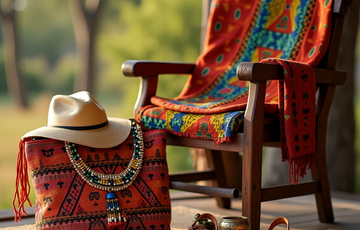Dogs have played complex roles within traditional African societies, leaving a lasting mark on cultures across the continent. The historical importance of these loyal companions in various African communities has been delved into, showcasing their diverse abilities and deeply respected significance. In this blog, we have covered their role as guardians of the night for the Berbers tribe of North Africa and the Maasai Tribe in East Africa, the hunting partners of the Fulani tribe in West Africa, as well as their spiritual and symbolic significance within the Egyptian community and the Yoruba tribe found in Nigeria. We have also explored their lasting legacy in the cultural expressions of the Zulu tribe in South Africa and the San people of southern Africa.
Guardians of the Night: Canine Protectors in Maasai and Berber Communities of Africa.
As night fell and darkness covered the African land, dogs assumed a vital role as guardians, reflecting the reliance that the Maasai tribes in East Africa and the Berbers in North Africa placed on their specialized canine companions to maintain vigilant watch.
These dogs went beyond being mere companions, emerging as dedicated protectors of the community. With sharp senses and quick instincts, they remained poised to detect any unusual sounds or movements, ready to raise the alarm at the slightest sign of disruption.
The Maasai people of East Africa, celebrated for their vibrant culture, entrusted their native dogs with safeguarding their homes and families. Similarly, the Berbers, with a rich history in North Africa, held steadfast belief in the capabilities of their loyal dogs to ensure the collective safety. These dogs seamlessly integrated into the community, often forming close bonds with the individuals they diligently watched over.
Under the expanse of the African sky, these dogs stood as vigilant companions, unwavering in their commitment to ensuring peaceful slumber for all. Their heightened alertness and exceptional ability to sense danger elevated their status to that of valued community members. In the interconnected African societies, these watchful dogs played a pivotal role, contributing to the safety and well-being of countless generations.

A Berber man and camels traveling as dogs accompanied them to sense any danger.The maasai people with dogs that safeguarded their homes.
Source:namayiana-safaris.com
Fulani Dogs as Hunting Companions and Livestock Guardians in West Africa.
Dogs played a pivotal role in supporting the everyday lives of African societies, serving as essential companions in hunting and providing crucial resources. In the expansive savannas and dense forests of West Africa, the Fulani people established a profound connection with their canine companions, utilizing their impressive tracking abilities for pursuing game animals that sustained their families and communities.
Moreover, the Fulani dogs showed extraordinary skill in herding, guiding and managing cattle herds, forming a partnership between the dogs and the Fulani people. This collaboration not only ensured the well-being and survival of the community but also facilitated successful management of vital resources – specifically, their livestock – which held central significance in the Fulani way of life.
This bond between the Fulani people and their dogs transcended mere companionship, shaping a relationship rooted in mutual reliance and a shared purpose. This connection solidified their integral role within the fabric of daily existence and survival.

Dogs that aided in hunting.
Source: commons.wikimedia.org
Cultural Legacy: Dogs' Enduring Impact on Zulu and San Expressions.
Beyond mere companionship, dogs' influence is evident in various forms of artistic expression and storytelling. Through beadwork, folklore, and visual arts, dogs have firmly established their place as respected and cherished figures, leaving a lasting mark on African culture.
Among the Zulu people, beadwork collars grace the necks of dogs, serving as both functional adornments and symbols of high status. These collars highlight the craftsmanship of the Zulu community and underscore the deep respect for dogs within the culture. The collars mirror the cultural pride and value attached to these devoted companions.
Similarly, the San people of southern Africa weave rich stories around dogs, portraying them as wise and resourceful guides for humans. In these narratives, dogs assume the mantle of spiritual guides, leading individuals on transformative journeys and imparting important life lessons. These stories illuminate the profound connection between humans and dogs, showcasing their roles as both companions and sources of wisdom.

Zulu men with their dogs and the a San couple seated with their dogs.
Source: sa-breeders.co.za
Conclusion
The profound historical significance of dogs within diverse African communities has encompassed protection, partnership, and cultural symbolism. Through the lens of time, we recognize the enduring bonds that have been formed, enriching the stories and identities of traditional African societies. Reflecting upon these roles, we celebrate the lasting relationship between humans and dogs that has continued to shape narratives and resonate through the legacy of African history.






